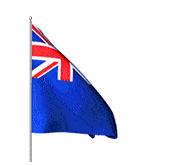Education System in New Zealand
New Zealand offers a diverse education system. Moreover, it is one of the best education systems in the world. The government aims to provide and maintain excellent literacy, mathematics, and science standards. The universities and other higher educational institutions rank top consistently by global standards.
The education system in the country is becoming increasingly international. The international education system is influenced by wide employment markets and the advanced market economy prevailing here. The best teaching staff, researchers, and advanced education system have attracted numerous international students for different courses in the top-rated educational institutes.
The education system in New Zealand is divided into three parts, including early childhood, school education, and university education. The government offers flexible pathways for supporting students. You can find numerous institutions offering several courses and programs. The highest level of education is university education, and you can also get a chance to do Ph.D. courses from the top universities here.
The universities offer bachelor's degrees and postgraduate degrees to students. The universities are also responsible for offering certificates, postgraduate diplomas, masters, and doctoral programs. Students can also take vocational training after completing the secondary level of education to get urgent employment. The programs aim at providing practical skills and industry training to students. The government-funded institutions, TAFE or Technical and Furthur Education, and private institutions offer vocational courses to students.
The New Zealand Qualifications Framework (NZQF) is responsible for regulating and maintaining the core of the education system. The framework lists all the qualifications provided by the educational institutions, and this framework is globally recognized.
\The tuition fees for international students studying at colleges and universities vary according to the course and the tenure of the course. The charges for tuition fees vary according to also to your university and the level of your study. The average tuition fees for undergraduate or bachelor's degrees may cost approximately between NZ$22,000 to NZ$30,000 a year. On the other hand, the average tuition fees for postgraduate students cost between NZ$25,000 and NZ$35,000 a year.
The education system in New Zealand is a supportive one, and you can get more personalized attention in the classroom. You can also experience an advanced teaching method and a wide range of teaching techniques. The government also provided necessary support to international students. New Zealand's government is the first to create a code of practice to support international students at the best level. International students can get admitted to any course, including vocational education and training (VET), English language courses, undergraduate and postgraduate studies, and tertiary education. Students can choose higher education programs. The higher education programs include bachelor's degrees, master's degrees, and doctoral degrees.
A vocational education and training (VET) qualification provide a pathway for urgent employment. Students can get admitted to numerous vocational training courses, including business services, information technology, art and media, tourism and hospitality, childcare, transport and logistics, mining, manufacturing, rural industries, and construction.
Students can also get several pathway programs, including foundation studies and English language preparation programs. These programs aim at providing support and guidance to students to get an enhanced career.
The secondary school system starts in January or February, and the vocational and university session starts in February or March. The vocational and university courses have a two-semester system. After completing, each semester, students have to appear in the examinations. Moreover, several institutions offer a summer program if there is a semester for students.
You must have enough ability to read, write, and speak the English language to study in New Zealand. If you don't have enough proficiency in English, you may have to enroll at an English language school to learn English. Several institutions and organizations offer English learning programs on a part-time and full-time basis. The universities offer a Certificate of Attainment in the English Language. It is a full-time course.
After completing your graduation course, you can still live and work in New Zealand. The government offers pathway programs according to their area of study. You can live and work in New Zealand for the initial four years.
The graduate pathway is divided into two parts: a post-study work visa and an employer-assisted work visa. In the case of a post-study work visa, you may live in New Zealand for up to 12 months to find a job in a related field of study. On the other hand, an employer-assisted work visa allows you to stay in New Zealand for two to three years to get enough work experience.
A post-graduate study will open up new platforms to start your career, and you can gain more expertise in your studies through it. You will get the same opportunities just like the graduate pathway programs. However, a postgraduate or doctoral degree will add more skills to your studies.







